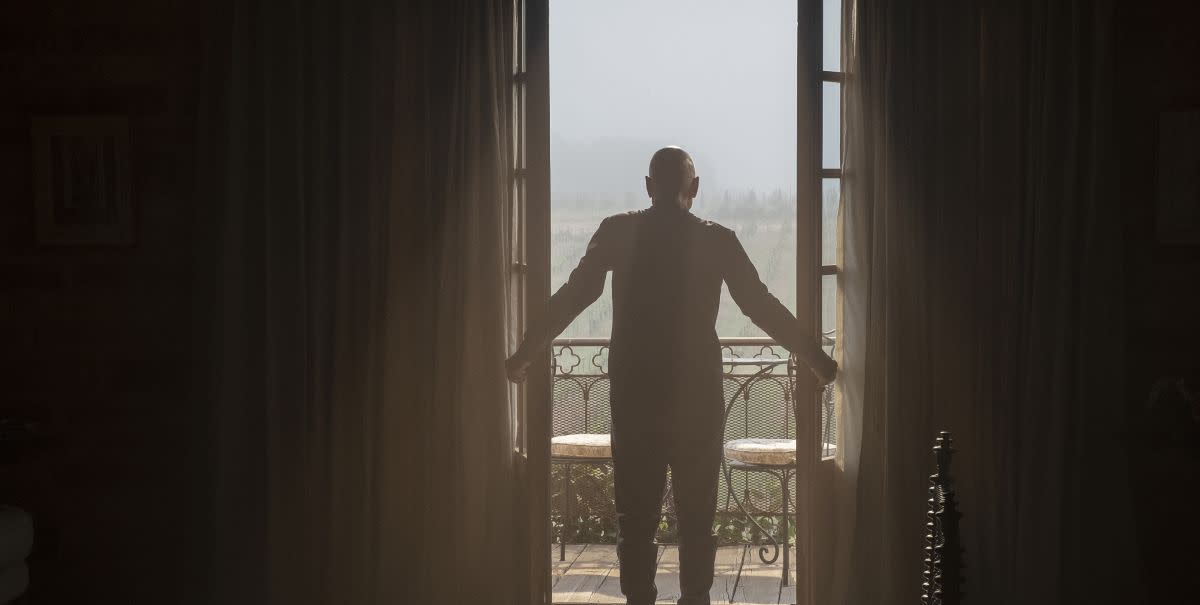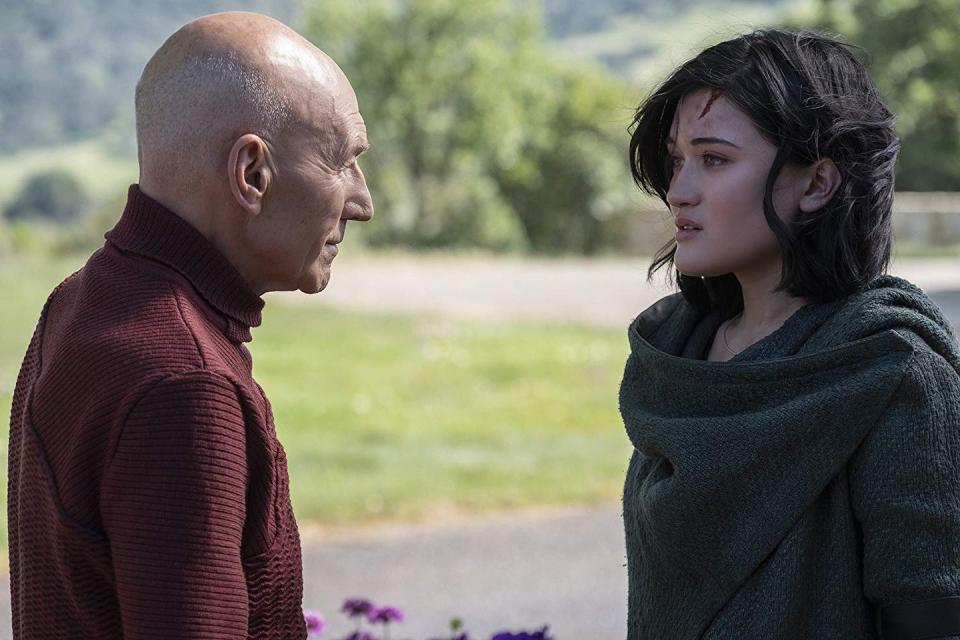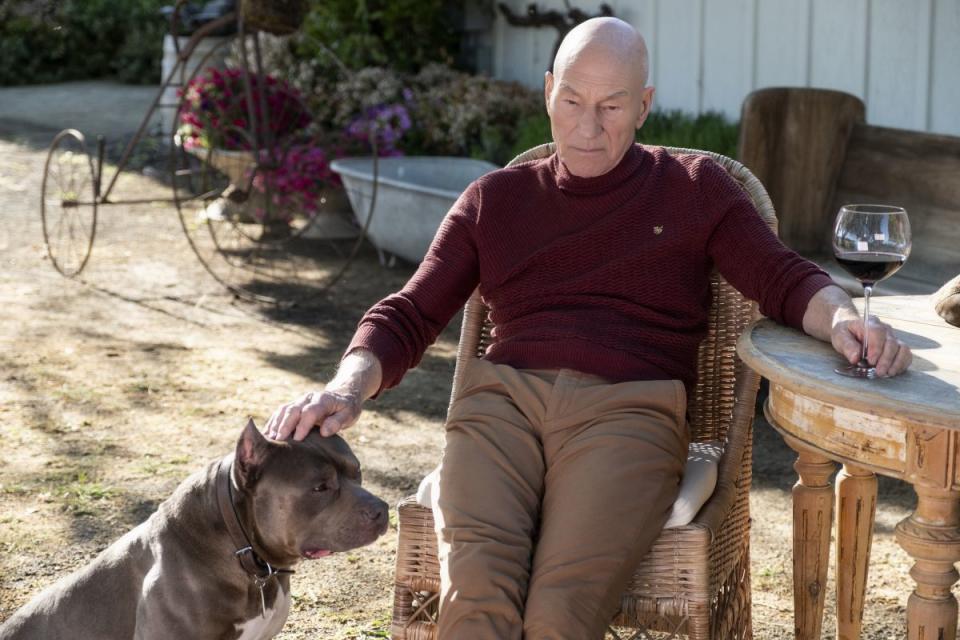Can Jean-Luc Picard Single-Handedly Revive Star Trek? (The Answer Is Yes.)

Any franchise with a dedicated fan base rests between a tug of war of what's new and what's familiar.
Take Star Wars, for example. With the trilogy wrapped up, the three films exemplify this back-and-forth perfectly. The Force Awakens is A New Hope by a different name, The Last Jedi is maybe too new for many people's liking, and The Rise of Skywalker is mostly an unimaginative rehash or The Return of the Jedi.
⚠️There will be some light spoilers below, so watch the show before reading further.
For Star Trek, things have gone differently. With Star Trek: Discovery, CBS created a show that was only Star Trek in name, having not much to do with the previous 50 years of the show in terms of tone, themes, or imagination. But Star Trek: Picard is something different. With its first episode appearing today, Picard—at least in its premiere episode—is a show that honors its past while trying to bring the series into the 21st (or is it 24th?) century.
Return of a Legend

Every famous character from the past 50 years is getting a second life. To list a few: Han Solo, Princess Leia, Luke Skywalker, Terminator, Sarah Connor, The Ghostbusters, Rick Deckard, Indiana Jones, Bill & Ted, and on and on and on. If a character was famous for a millisecond throughout the 80s or 90s, they're likely making a reboot as we speak.
Then there's Jean-Luc Picard. He certainly fits the bill. Popular between 1988-1994 thanks to Star Trek: The Next Generation, the last show creator Gene Roddenberry ever worked on. But unlike most of these reboot characters, he's not much of an action hero. A lonely philosopher captain who seems distant from even his own crew, he's doesn't exactly fit the idea of the action-packed Nu-Trek a la Star Trek: Discovery (aside from a few...unfortunate...feature length films).
But Picard is exactly what Star Trek needs, good writing, a slower pace, and something that audiences can actually be invested in and care about.
A lot of this is pulled off by Patrick Stewart, who at 79 hasn't lost a single ounce of his acting power. Unlike in Discovery where emotions are just openly stated sans nuance, Stewart actually tells his emotions through acting. At one moment in "Remembrance," someone asks a question about commander Data, an android and close friend of Picard's who died in the closing moments of 2002's Nemesis, and you actually see the pain of the question on Picard's face.
To me, that's what updating Star Trek for new audiences looks like. Star Trek has never been a show that's nabbed a ton of Emmys (though it won several technical ones). But in what is now called "The Golden Age of Television," where TV shows—streaming or otherwise—are absolutely dripping with acting talent, why shouldn't Star Trek be the same?
Star Trek: Picard is the answer to that question.
Explosions and Exposition

Yes, there are things about Picard that gives it that modern day Discovery feel.
Isa Briones, for example, can enter ass-kicking mode for some mostly gratuitous action sequences and there are more than a few explosions to go around. But these narrative tricks seem less cheap when they're followed up by compelling storytelling.
A lot of that credit goes to Michael Chabon, Pulitzer Prize-winning author and head writer on Picard. Chabon first appeared in a Short Trek episode in 2018 called "Calypso"—it was by far the best episode of the bunch.
The writing here feels equally elevated. Chabon and the writing team do a great job of balancing nostalgia (those "remember this?!" moments) and trying to deliver something that builds on the world of Trek we already love.
Picard pulls this off with a compelling mix of new characters, like Laris and Zhaban who are Picard's Romulan caretakers, and the troubled-yet-deadly Dahj. Picard also provides new perspectives on drastic details in Star Trek cannon, like the destruction of Romulus. Picard reminds viewers why we fell in love with Stewart's philosophical captain in the first place. While waiting out his days on his vineyard, Picard appears defeated—but his ideals remained very much intact.
The only negative things to say about "Remembrance" is that there is a lot of exposition and setting things up for the season ahead, which is to be expected in an opening episode, and some of the action feels a little tired, especially since we're talking about a 79-year-old retired Starfleet captain. Hopefully as things progress through the 10-episode first season, things will only improve.
The Promise of Small

For the past decade, fan-heavy franchises, whether Star Wars, Marvel, Star Trek, or otherwise—have subscribed to a "Bigger is Better" philosophy. Each TV season or film needs to exceed the previous one in its enormity.
But there's something powerful to small narratives, stories that don't shake the very foundations of their universes. This is most excellently exemplified in The Mandalorian, a small tale of a bounty hunter and his small green companion as they traipse through the galaxy. It's no coincidence it's one of Disney's biggest wins since it bought Star Wars in 2012.
Hopefully, Picard can to the same for Star Trek because the franchise desperately needs an intervention. Star Trek used to stand for something, and with Picard it can again.
You Might Also Like


